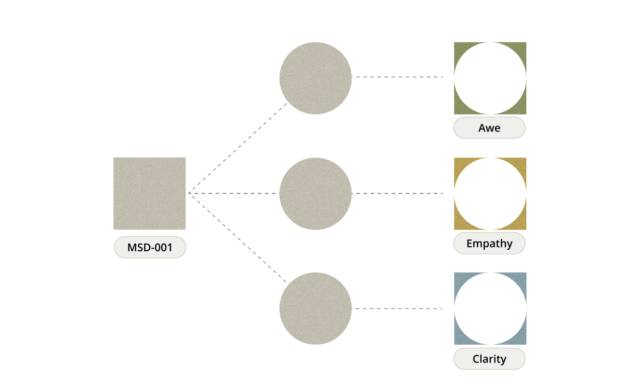A San Francisco company has been making its mark on the psychedelics sector by using an AI-powered platform to develop novel psychoactive therapeutics. The aim of its game is to make drugs that work in tandem with classic psychedelics like LSD or psilocybin to enable more predictable experiences.
Following FDA approval last year, Mindstate Design Labs recently commenced inaugural clinical trials on the lead psychedelic drug candidate developed by its artificial intelligence software program “Osmanthus.”
“Synthesizing 60,000 human reports of psychoactive drug effects with biochemical data, Osmanthus identifies how specific neurotransmitter receptor combinations produce distinct emotional and cognitive states,” Mindstate specified on its web page.
The biotech startup has also received authorization from the European Medicines Agency for the ongoing in-human studies.
They will examine the effects of MSD-101 — a proprietary formulation of the synthetic tryptamine compound 5-methoxy-N-methyl-N-isopropyltryptamine (5-MeO-MiPT). It is known by the name “Moxy” on the street. The trials, involving 52 participants, are being held at the Center for Human Drug Research in the Netherlands.
Mindstate’s objective is to use MSD-101 as a psychedelic foundation in conjunction with other psychoactive compounds to create custom-tailored experiences for the user, in a nutshell, along with other creations from Osmanthus.
“If we can find these mechanisms by which these psychedelics cause very different effects, we can leverage those mechanisms and turn them into entirely novel psychoactive therapeutics,” CEO Dillan DiNardo said in a January interview.
The company is currently working to fine-tune multiple drug combos with its lead candidate serving as the base ingredient.
“We don’t need to eliminate the psychoactive effects of psychedelics,” DiNardo stated in an X post about the trial approvals in September. “We need the ability to choose the effects that are helpful – to transform these largely effective but unpredictable messes of psychoactive effects into a series of precision-targeted psychoactive profiles.”

Image credit: Mindstate Design Labs
Read more: Home cannabis cultivation and psilocybin therapy to be legal in Czechia next year
DiNardo gave intriguing presentation in May
At the Psychedelic Therapeutics & Drug Development Conference in San Diego last month, Mindstate’s chief executive and co-founder enlightened attendees about the imperative need for well-structured clinical research.
The talk he delivered was titled Psychoactive Trial Design: Laying the Groundwork for Mechanistic Breakthroughs and Precision-Designed Psychoactive Effects.
In the presentation, he discussed the importance of optimal dosing strategies and the need for careful selection of study participants.
DiNardo founded Mindstate with Thomas Ray in 2021 — another passionate psychedelics researcher who attained a PhD in biology from Harvard University in 1981.
“The diverse set of psychoactive drugs collectively represents a rich set of tools for probing the chemical architecture of the human mind,” Ray says.
Since its inception, Mindstate has raised over US$24.3 million to propel its unorthodox drug development endeavours.
The company’s goal is to minimize the unwanted side effects many traditional psychoactive drugs can have, thereby making psychedelic therapeutics have less complications. By accomplishing this, the California AI and psychedelics specialist can contribute to solving the global mental health crisis.
Read more: University student discovers novel psychoactive fungus on flower
Follow Rowan Dunne on LinkedIn
rowan@mugglehead.com














